Brazil GDP plunges 3.8%, biggest fall in 25 years
by Silvio Cascione,
2016-03-03 17:40:52.0
BRASILIA — Brazil’s economy contracted sharply in 2015 as businesses slashed investment plans and laid off more than 1.5-million workers, official data showed on Thursday, setting the stage for what could be the country’s deepest recession on record.
Brazil’s gross domestic product (GDP) shrank 3.8% in 2015, capped by another steep contraction in the fourth quarter, according to statistics agency IBGE.
The 2015 slump was the steepest annual drop for Brazil’s GDP since 1990, when hyperinflation and debt default blighted the country’s recent return to democracy.
Brazil was hit in late 2015 by the disastrous burst of a major mining dam and the biggest oil strike in 20 years. Both struck an economy weakened by a paralysing political crisis, rising inflation and interest rates, and a sharp drop in the price of its commodity exports.
The outcome was the lowest economic growth rate of all G20 countries and one of the highest inflation rates, at 10.7%.
This year’s recessionary outlook is nearly as severe, with a 3.45% downturn forecast for 2016, according to economists surveyed by the central bank.
Back-to-back annual recessions of this magnitude would amount to the longest and deepest downturn for Brazil since records began in 1901.
A private survey on Thursday suggested services activity contracted in February at the steepest rate on record, adding to evidence that the recession had yet to hit bottom.
"We will probably see a similar contraction this year. There are no growth engines yet. The only one could be exports, but Brazil’s economy is relatively closed so we don’t see that taking us out of this hole," said Joao Pedro Ribeiro, Latin America economist with Nomura Securities.
Latin America’s largest country, once the world’s seventh-biggest economy, had already been underperforming since 2011, the year President Dilma Rousseff took office. A sharp increase in government spending and subsidised credit underpinned the labor market until 2014, at the cost of fueling inflation and eroding government finances.
The recession began just as Ms Rousseff started to roll back e costly stimulus policies, hiking taxes and interest rates and slashing investments in oil production. A corruption scandal at state-run oil producer Petroleo Brasileiro SA and major construction firms also froze works at many infrastructure projects across the country.
Ms Rousseff’s popularity plummeted to record lows last year, fueling street protests for her impeachment.
"Despite all the rhetoric from Rousseff last year about boosting private investment, it’s abundantly clear that investors, both foreign and domestic, are staying away in their droves," said Michael Henderson, lead economist with consulting firm Verisk Maplecroft, in England.
The recession has been so severe that Brazil will probably regain its previous size only by 2019, grappling with much higher debts, according to a Reuters poll.
In a closely watched figure for financial markets, the GDP also contracted 1.4% in the fourth quarter from the third, in its fourth straight quarterly decline, IBGE said.
Agriculture was the only bright spot in the fourth quarter, with a growth rate of 2.9% versus the third quarter. In the same period, Brazil’s industry and services fell 1.4% each.
Household consumption fell for a fourth straight quarter, with a drop of 1.3%, while investments plunged 4.9%. Government consumption also declined, falling at the steepest quarterly rate since end 2008, 2.9%. The 2015 downturn matched market expectations in a Reuters poll. Yields on interest rate futures rose after the data was published, also reflecting a split central bank decision to leave interest rates unchanged on Wednesday.
Reuters
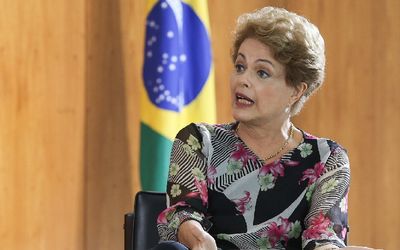
Dilma Rousseff. Picture: BLOOMBERG/LULA MARQUES
BRASILIA — Brazil’s economy contracted sharply in 2015 as businesses slashed investment plans and laid off more than 1.5-million workers, official data showed on Thursday, setting the stage for what could be the country’s deepest recession on record.
Brazil’s gross domestic product (GDP) shrank 3.8% in 2015, capped by another steep contraction in the fourth quarter, according to statistics agency IBGE.
The 2015 slump was the steepest annual drop for Brazil’s GDP since 1990, when hyperinflation and debt default blighted the country’s recent return to democracy.
Brazil was hit in late 2015 by the disastrous burst of a major mining dam and the biggest oil strike in 20 years. Both struck an economy weakened by a paralysing political crisis, rising inflation and interest rates, and a sharp drop in the price of its commodity exports.
The outcome was the lowest economic growth rate of all G20 countries and one of the highest inflation rates, at 10.7%.
This year’s recessionary outlook is nearly as severe, with a 3.45% downturn forecast for 2016, according to economists surveyed by the central bank.
Back-to-back annual recessions of this magnitude would amount to the longest and deepest downturn for Brazil since records began in 1901.
A private survey on Thursday suggested services activity contracted in February at the steepest rate on record, adding to evidence that the recession had yet to hit bottom.
"We will probably see a similar contraction this year. There are no growth engines yet. The only one could be exports, but Brazil’s economy is relatively closed so we don’t see that taking us out of this hole," said Joao Pedro Ribeiro, Latin America economist with Nomura Securities.
Latin America’s largest country, once the world’s seventh-biggest economy, had already been underperforming since 2011, the year President Dilma Rousseff took office. A sharp increase in government spending and subsidised credit underpinned the labor market until 2014, at the cost of fueling inflation and eroding government finances.
The recession began just as Ms Rousseff started to roll back e costly stimulus policies, hiking taxes and interest rates and slashing investments in oil production. A corruption scandal at state-run oil producer Petroleo Brasileiro SA and major construction firms also froze works at many infrastructure projects across the country.
Ms Rousseff’s popularity plummeted to record lows last year, fueling street protests for her impeachment.
"Despite all the rhetoric from Rousseff last year about boosting private investment, it’s abundantly clear that investors, both foreign and domestic, are staying away in their droves," said Michael Henderson, lead economist with consulting firm Verisk Maplecroft, in England.
The recession has been so severe that Brazil will probably regain its previous size only by 2019, grappling with much higher debts, according to a Reuters poll.
In a closely watched figure for financial markets, the GDP also contracted 1.4% in the fourth quarter from the third, in its fourth straight quarterly decline, IBGE said.
Agriculture was the only bright spot in the fourth quarter, with a growth rate of 2.9% versus the third quarter. In the same period, Brazil’s industry and services fell 1.4% each.
Household consumption fell for a fourth straight quarter, with a drop of 1.3%, while investments plunged 4.9%. Government consumption also declined, falling at the steepest quarterly rate since end 2008, 2.9%. The 2015 downturn matched market expectations in a Reuters poll. Yields on interest rate futures rose after the data was published, also reflecting a split central bank decision to leave interest rates unchanged on Wednesday.
Reuters


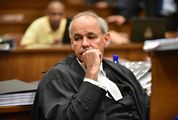

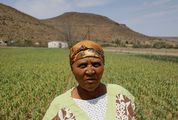


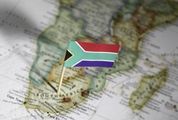
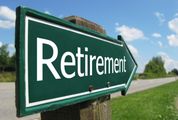
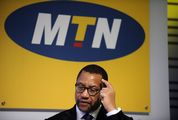










Change: 0.71%
Change: 0.64%
Change: 0.35%
Change: 0.20%
Change: 3.02%
Data supplied by Profile Data
Change: 0.36%
Change: 0.26%
Change: 0.71%
Change: 0.00%
Change: 0.35%
Data supplied by Profile Data
Change: -0.06%
Change: -0.18%
Change: -0.06%
Change: 0.07%
Change: 0.46%
Data supplied by Profile Data
Change: 1.10%
Change: 1.07%
Change: 1.14%
Change: 3.88%
Change: 0.05%
Data supplied by Profile Data